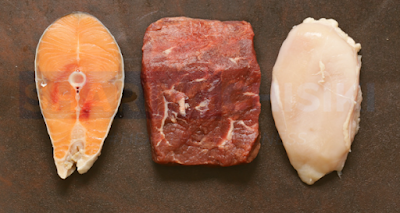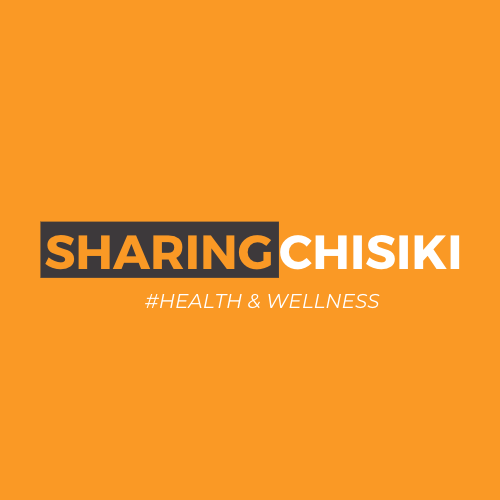Clean Eating is a concept that has gained increasing popularity in recent years as people become more aware of the benefits of a healthy diet. Clean eating is a way of consuming food that is free from processed foods, additives, and chemicals. Instead, it focuses on eating whole, natural foods that are nutrient-dense and good for the body. In this article, we will explore the principles of clean eating, how to get started, and tips for maintaining a clean eating lifestyle.
Table of Contents
What is Clean Eating?
The Benefits of Clean Eating
- Improved Digestion
- More Energy
- Better Mental Clarity
- Weight Loss
- Improved Skin Health
The Principles of Clean Eating
- Focus on Whole Foods
- Avoid Processed Foods
- Choose Lean Proteins
- Consume Healthy Fats
- Limit Sugar and Salt Intake
How to Start Clean Eating
- Clean Out Your Pantry
- Plan Your Meals
- Shop the Perimeter of the Grocery Store
- Cook Your Own Meals
Tips for Maintaining a Clean Eating Lifestyle
- Find Healthy Alternatives to Your Favorite Foods
- Stay Hydrated
- Don't Be Too Strict
- Get Creative with Your Meals
- Listen to Your Body
Conclusion
FAQs
What is Clean Eating?
Clean eating is a lifestyle that involves consuming whole, unprocessed foods that are free from artificial ingredients and chemicals. The goal of clean eating is to eat foods that are as close to their natural state as possible. This means that you avoid processed and packaged foods that often contain added sugars, preservatives, and other artificial ingredients.The Benefits of Clean Eating
Clean eating is a lifestyle that promotes the consumption of whole, natural foods that are free from artificial ingredients and chemicals. By following the principles of clean eating, you can reap a wide range of health benefits.
- Improved Digestion
One of the main benefits of clean eating is improved digestion. Processed foods and those high in sugar and unhealthy fats can wreak havoc on your digestive system, leading to issues such as bloating, constipation, and diarrhea. By consuming whole, natural foods that are high in fiber and nutrients, you can support healthy digestion and prevent these uncomfortable symptoms.
- More Energy
Clean eating can also help boost your energy levels. Whole, natural foods are rich in vitamins, minerals, and other nutrients that your body needs to function properly. By providing your body with the fuel it needs, you can feel more energized throughout the day and avoid the mid-afternoon slump that often comes after consuming processed foods.
- Better Mental Clarity
In addition to physical benefits, clean eating can also improve your mental clarity. Studies have shown that diets high in processed foods and unhealthy fats can contribute to cognitive decline and memory problems. By consuming whole, natural foods that are rich in antioxidants and other brain-boosting nutrients, you can support healthy brain function and improve your cognitive abilities.
- Weight Loss
Clean eating can also help with weight loss. By consuming whole, natural foods that are low in calories and high in nutrients, you can support healthy weight loss and achieve your weight loss goals. Additionally, clean eating can help you feel fuller for longer periods of time, reducing the likelihood of overeating and snacking on unhealthy foods.
- Improved Skin Health
Finally, clean eating can improve your skin health. Processed foods and those high in sugar and unhealthy fats can contribute to acne, wrinkles, and other skin issues. By consuming whole, natural foods that are rich in antioxidants and other skin-boosting nutrients, you can support healthy, glowing skin.
One of the main benefits of clean eating is improved digestion. Processed foods and those high in sugar and unhealthy fats can wreak havoc on your digestive system, leading to issues such as bloating, constipation, and diarrhea. By consuming whole, natural foods that are high in fiber and nutrients, you can support healthy digestion and prevent these uncomfortable symptoms.
Clean eating can also help boost your energy levels. Whole, natural foods are rich in vitamins, minerals, and other nutrients that your body needs to function properly. By providing your body with the fuel it needs, you can feel more energized throughout the day and avoid the mid-afternoon slump that often comes after consuming processed foods.
In addition to physical benefits, clean eating can also improve your mental clarity. Studies have shown that diets high in processed foods and unhealthy fats can contribute to cognitive decline and memory problems. By consuming whole, natural foods that are rich in antioxidants and other brain-boosting nutrients, you can support healthy brain function and improve your cognitive abilities.
Clean eating can also help with weight loss. By consuming whole, natural foods that are low in calories and high in nutrients, you can support healthy weight loss and achieve your weight loss goals. Additionally, clean eating can help you feel fuller for longer periods of time, reducing the likelihood of overeating and snacking on unhealthy foods.
Finally, clean eating can improve your skin health. Processed foods and those high in sugar and unhealthy fats can contribute to acne, wrinkles, and other skin issues. By consuming whole, natural foods that are rich in antioxidants and other skin-boosting nutrients, you can support healthy, glowing skin.
Overall, clean eating is a simple and effective way to improve your overall health and wellbeing. By consuming whole, natural foods and avoiding processed and unhealthy foods, you can experience a wide range of benefits that can help you feel and look your best.
The Principles of Clean Eating
The principles of clean eating are relatively simple. It involves consuming whole foods that are in their natural state, including fruits, vegetables, whole grains, lean proteins, and healthy fats. The following are some of the key principles of clean eating:- Focus on Whole Foods
Clean eating is all about consuming whole foods that are unprocessed and nutrient-dense. Choose natural foods like fruits, vegetables, whole grains, lean proteins, and healthy fats to optimize your health. Opt for minimally processed options for the best results.
- Avoid Processed Foods
Processed foods are often high in sugar, unhealthy fats, and other additives that are not beneficial to the body. Clean eating involves avoiding processed and packaged foods and opting for whole foods instead.
- Choose Lean Proteins
Protein is an essential macronutrient that the body needs for muscle repair and growth. When selecting protein sources, it is important to choose lean proteins, such as chicken, turkey, fish, and legumes.
- Consume Healthy Fats
Healthy fats are important for heart health and brain function. Healthy fat sources such as avocados, nuts, seeds, and olive oil can be incorporated into your diet to promote better health.
- Limit Sugar and Salt Intake
Sugar and salt are often added to processed foods to enhance their flavor. However, consuming too much sugar and salt can lead to health problems, such as high blood pressure and diabetes. Clean eating involves limiting your intake of sugar and salt and opting for natural sources of sweetness, such as fruit.
Clean eating is all about consuming whole foods that are unprocessed and nutrient-dense. Choose natural foods like fruits, vegetables, whole grains, lean proteins, and healthy fats to optimize your health. Opt for minimally processed options for the best results.
Processed foods are often high in sugar, unhealthy fats, and other additives that are not beneficial to the body. Clean eating involves avoiding processed and packaged foods and opting for whole foods instead.
Protein is an essential macronutrient that the body needs for muscle repair and growth. When selecting protein sources, it is important to choose lean proteins, such as chicken, turkey, fish, and legumes.
Healthy fats are important for heart health and brain function. Healthy fat sources such as avocados, nuts, seeds, and olive oil can be incorporated into your diet to promote better health.
Sugar and salt are often added to processed foods to enhance their flavor. However, consuming too much sugar and salt can lead to health problems, such as high blood pressure and diabetes. Clean eating involves limiting your intake of sugar and salt and opting for natural sources of sweetness, such as fruit.
How to Start Clean Eating
Getting started with clean eating can be overwhelming, but it doesn't have to be. The following are some tips for getting started with clean eating:- Clean Out Your Pantry
The first step in getting started with clean eating is to clean out your pantry. Get rid of any processed or packaged foods and opt for whole, natural foods instead.
- Plan Your Meals
Meal planning can help you stay on track with your clean eating goals. Planning your meals in advance is important to ensure that you're consuming a balanced diet that includes a variety of whole foods, lean proteins, and healthy fats.
- Shop the Perimeter of the Grocery Store
The perimeter of the grocery store is where you will find the majority of whole, unprocessed foods. Focus on shopping for fresh fruits and vegetables, lean proteins, and healthy fats.
- Cook Your Own Meals
Cooking your own meals is a great way to ensure that you are consuming whole, natural foods. When cooking, focus on using healthy cooking methods, such as grilling, baking, and steaming.
The first step in getting started with clean eating is to clean out your pantry. Get rid of any processed or packaged foods and opt for whole, natural foods instead.
Meal planning can help you stay on track with your clean eating goals. Planning your meals in advance is important to ensure that you're consuming a balanced diet that includes a variety of whole foods, lean proteins, and healthy fats.
The perimeter of the grocery store is where you will find the majority of whole, unprocessed foods. Focus on shopping for fresh fruits and vegetables, lean proteins, and healthy fats.
Cooking your own meals is a great way to ensure that you are consuming whole, natural foods. When cooking, focus on using healthy cooking methods, such as grilling, baking, and steaming.
Tips for Maintaining a Clean Eating Lifestyle
Maintaining a clean eating lifestyle can be challenging, but it doesn't have to be. The following are some tips for maintaining a clean eating lifestyle:- Find Healthy Alternatives to Your Favorite Foods
Cravings can be one of the biggest challenges when it comes to clean eating. However, there are plenty of healthy alternatives to your favorite foods that can satisfy your cravings. For example, instead of reaching for a bag of chips, try snacking on roasted chickpeas or veggie sticks with hummus.
- Stay Hydrated
Drinking plenty of water is important for overall health and can also help you stay on track with your clean eating goals. To stay hydrated, it's recommended to drink at least eight glasses of water daily. Avoid consuming too many sugary drinks to maintain a healthy diet.
- Don't Be Too Strict
While it's important to stick to the principles of clean eating, it's also important to allow yourself some flexibility. Don't beat yourself up if you indulge in a treat every now and then. The key to maintaining a healthy lifestyle is to consistently make healthy choices as often as possible.
- Get Creative with Your Meals
Eating clean doesn't have to be boring. Get creative with your meals by trying out new recipes and experimenting with different spices and herbs. Incorporating a variety of healthy foods into your meals can help keep your diet interesting and prevent boredom.
- Listen to Your Body
It's important to keep in mind that every individual's body is unique, and what may be effective for one person may not necessarily work for another. Listen to your body and pay attention to how certain foods make you feel. By being informed about the nutritional content of different foods, you can make better decisions about what to include in your diet and what to avoid.
Cravings can be one of the biggest challenges when it comes to clean eating. However, there are plenty of healthy alternatives to your favorite foods that can satisfy your cravings. For example, instead of reaching for a bag of chips, try snacking on roasted chickpeas or veggie sticks with hummus.
Drinking plenty of water is important for overall health and can also help you stay on track with your clean eating goals. To stay hydrated, it's recommended to drink at least eight glasses of water daily. Avoid consuming too many sugary drinks to maintain a healthy diet.
While it's important to stick to the principles of clean eating, it's also important to allow yourself some flexibility. Don't beat yourself up if you indulge in a treat every now and then. The key to maintaining a healthy lifestyle is to consistently make healthy choices as often as possible.
Eating clean doesn't have to be boring. Get creative with your meals by trying out new recipes and experimenting with different spices and herbs. Incorporating a variety of healthy foods into your meals can help keep your diet interesting and prevent boredom.
It's important to keep in mind that every individual's body is unique, and what may be effective for one person may not necessarily work for another. Listen to your body and pay attention to how certain foods make you feel. By being informed about the nutritional content of different foods, you can make better decisions about what to include in your diet and what to avoid.
Conclusion
In conclusion, clean eating is a simple and effective way to improve your overall health and wellbeing. By consuming whole, natural foods that are free from artificial ingredients and chemicals, you can provide your body with the nutrients it needs to thrive. While it may take some time to get used to this way of eating, the benefits are well worth it.FAQs
- Is clean eating expensive?
Clean eating can be affordable, especially if you focus on buying whole, unprocessed foods. Shopping for seasonal produce and buying in bulk can also help keep costs down.
- Can I eat out while following a clean eating lifestyle?
Yes, you can still eat out while following a clean eating lifestyle. Look for restaurants that offer healthy options, and ask for modifications to your meal if necessary.
- Can clean eating help with weight loss?
Eating clean can help with weight loss by promoting the consumption of nutrient-dense, low-calorie foods. However, it is important to remember that weight loss is a complex process that involves many factors, including exercise and overall calorie intake.
- Is it necessary to eliminate all processed foods from my diet?
While it's important to limit your intake of processed foods, it's not necessary to eliminate them completely from your diet. Instead, focus on consuming whole, natural foods most of the time.
- Can clean eating help with chronic health conditions?
Eating a clean diet can help improve overall health and may also help manage certain chronic health conditions, such as diabetes and high blood pressure. Before making any major changes to your diet, it's important to seek advice from a healthcare professional.
Read more: 10 Foods to Boost Your Metabolism Naturally in 2023Clean eating can be affordable, especially if you focus on buying whole, unprocessed foods. Shopping for seasonal produce and buying in bulk can also help keep costs down.
Yes, you can still eat out while following a clean eating lifestyle. Look for restaurants that offer healthy options, and ask for modifications to your meal if necessary.
Eating clean can help with weight loss by promoting the consumption of nutrient-dense, low-calorie foods. However, it is important to remember that weight loss is a complex process that involves many factors, including exercise and overall calorie intake.
While it's important to limit your intake of processed foods, it's not necessary to eliminate them completely from your diet. Instead, focus on consuming whole, natural foods most of the time.
Eating a clean diet can help improve overall health and may also help manage certain chronic health conditions, such as diabetes and high blood pressure. Before making any major changes to your diet, it's important to seek advice from a healthcare professional.


























